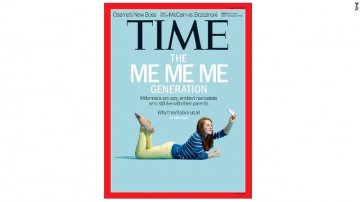I have been lucky enough to work for The Digital Tattoo Project since September 2012. The following (almost) two years have taught me so much, not just about protecting my online identity but all sorts of skills both hard and soft. For example, I now know how to create DIY educational materials as well as set up an account on Lulu. Digital literacy is undervalued in traditional education despite the fact that it directly effect everyone across all ages who interacts online. I hope that digital awareness and understanding of it’s importance continues to grow for teachers, students and all professionals.
With no further ado,
The top five things I have learned over the past two years working for The Digital Tattoo Project.
1. Everyone has passionate opinions about how they interact with their online environment.
How do you feel about being tracked online, Geotagging or Creative Commons licenses? So much of modern life takes place takes place online that we naturally feel ownership over what happens in an online sphere. One of the most incendiary topics is the idea of “Cleaning Up” your online identity. If the internet is an accurate reflection of who you are as a person, why do employers expect an prefect online footprint? There isn’t a perfect answer for this question, just like there isn’t a flawless online identity. In reality a hiring manager might not expect perfection but they will make decisions about your character as an employee? While the question of “fairness” often arises in Digital Tattoo workshops, the question is irrelevant. It is a fact that employers are investigating you online. What are you going to do about it?
2. Young people care about privacy.
 It has become popular story in the media to talk about the very public lives of the millennial generation. Who can forget the infamous “Me Me Me” cover of TIME magazine? For every person who checks in online every time they enter a new building, there are many more who avoid it checking entirely. Constant Facebook and Twitter updates have been replaced by private conversations on mobile applications like SnapChat. University and High School students are becoming more and more aware of the implications of their online behavior.
It has become popular story in the media to talk about the very public lives of the millennial generation. Who can forget the infamous “Me Me Me” cover of TIME magazine? For every person who checks in online every time they enter a new building, there are many more who avoid it checking entirely. Constant Facebook and Twitter updates have been replaced by private conversations on mobile applications like SnapChat. University and High School students are becoming more and more aware of the implications of their online behavior.
3. Your Digital Footprint is always evolving.
Googling yourself isn’t narcissistic. In fact, you could call Googling yourself “maintaining your positive online brand”. For the less SEO, VC, and business minded of us, Googling yourself is a wonderful way to see what other people see of you. Be sure to click on the images tab of Google to see what pictures pop-up. You wouldn’t want your tagged vacation photos to show up in the first page of results. As your life changes with newactivities or careers, so does your online identity. Try to Google yourself every six months. That way you can work to shape your identity in a manner that best suits your personal and professional goals.
4. Social Media isn’t going away.
It might shift or evolve, move to a more private sphere or adapt into something that look more like the Friendsters or the past. To be honest, I have no sure bet idea. One thing that we can bet on is that the internet has completely changed the society we live in and that includes how we connect and interact with other people. That’s not going to change anytime soon.
5. Google Alerts are life changing.
Google Alerts are a way of life here at The Digital Tattoo. We use them to track our Digital Identity as well as help us with our research. Want to know if someone has published something online with your name? Just create a Google Alert and you’ll receive emails each time a person writes something which contains the phrase “John Smith”. If your name is super common (sorry John) you can add another piece of iditfiny information for example, “John Smith” and “UBC”. This will help set you apart online.
Well that’s all for now. Goodbye and TBYI!
Social media graduation image courtesy of mkhmarketing.wordpress.com, via Flickr.

